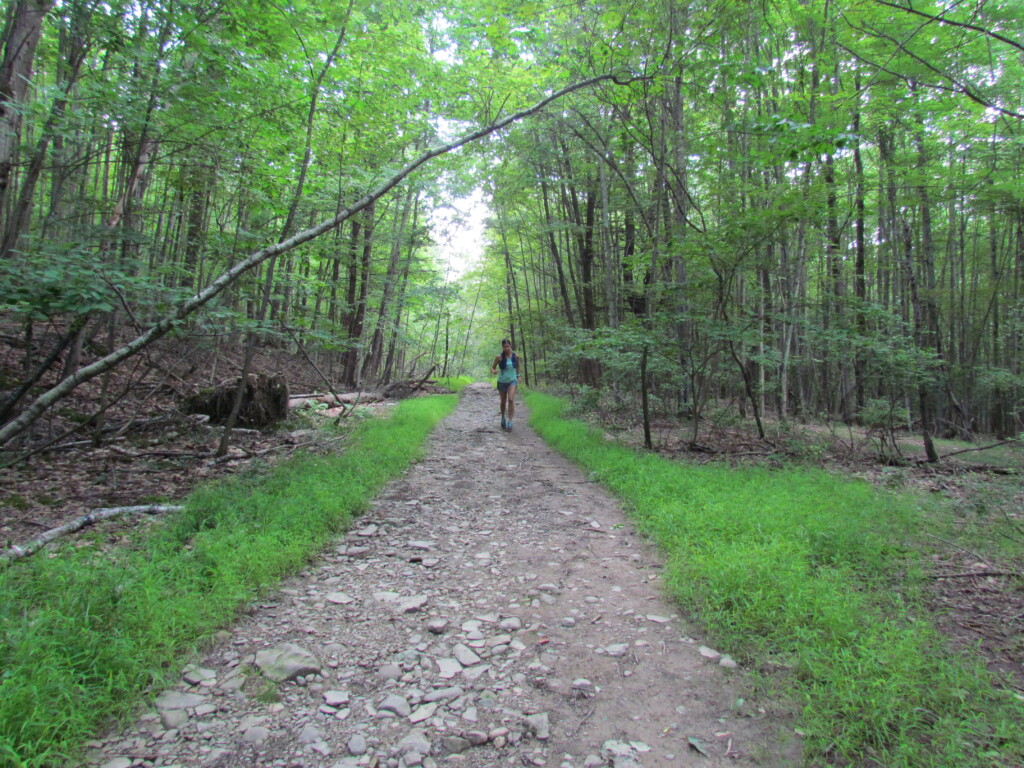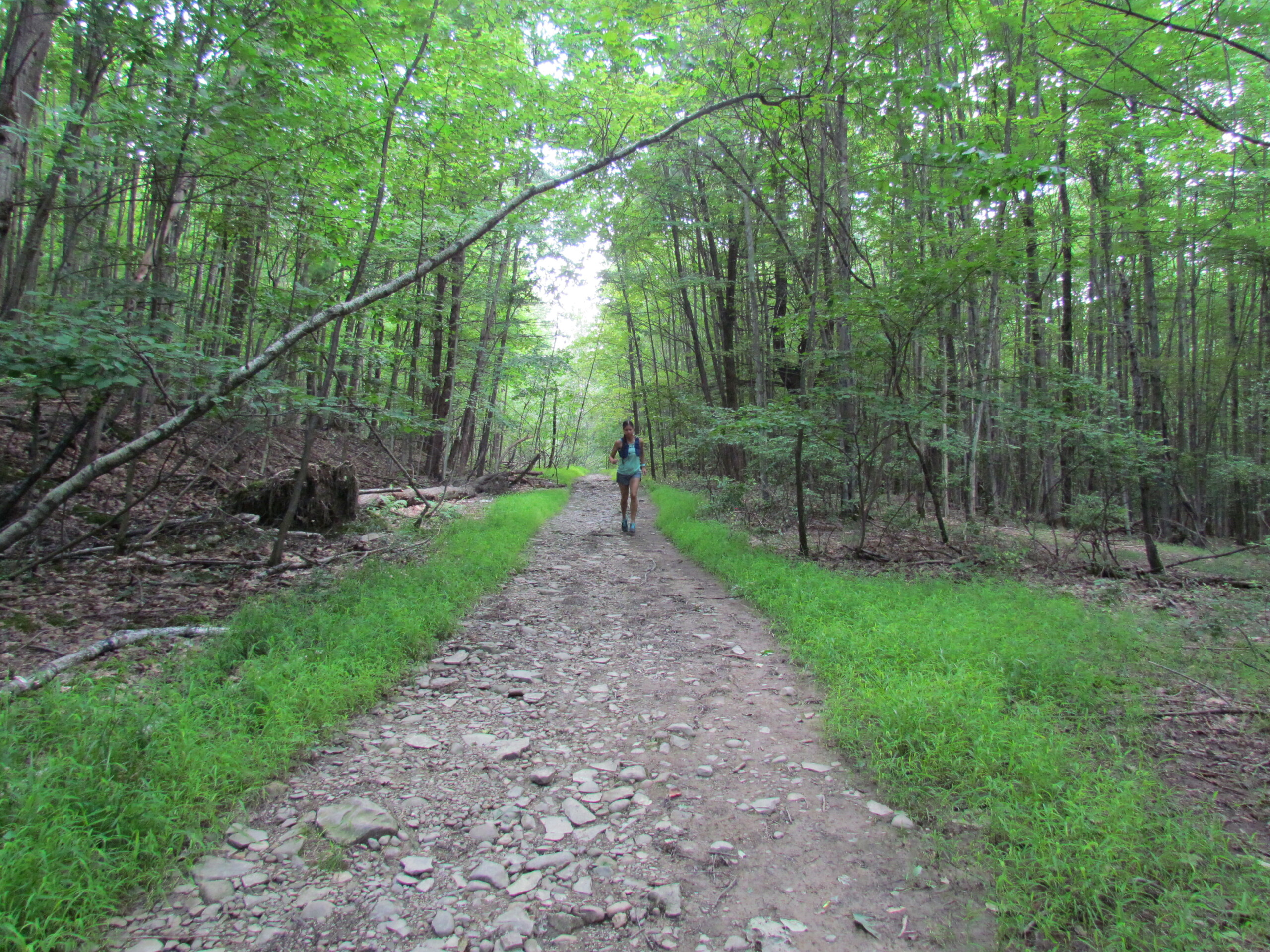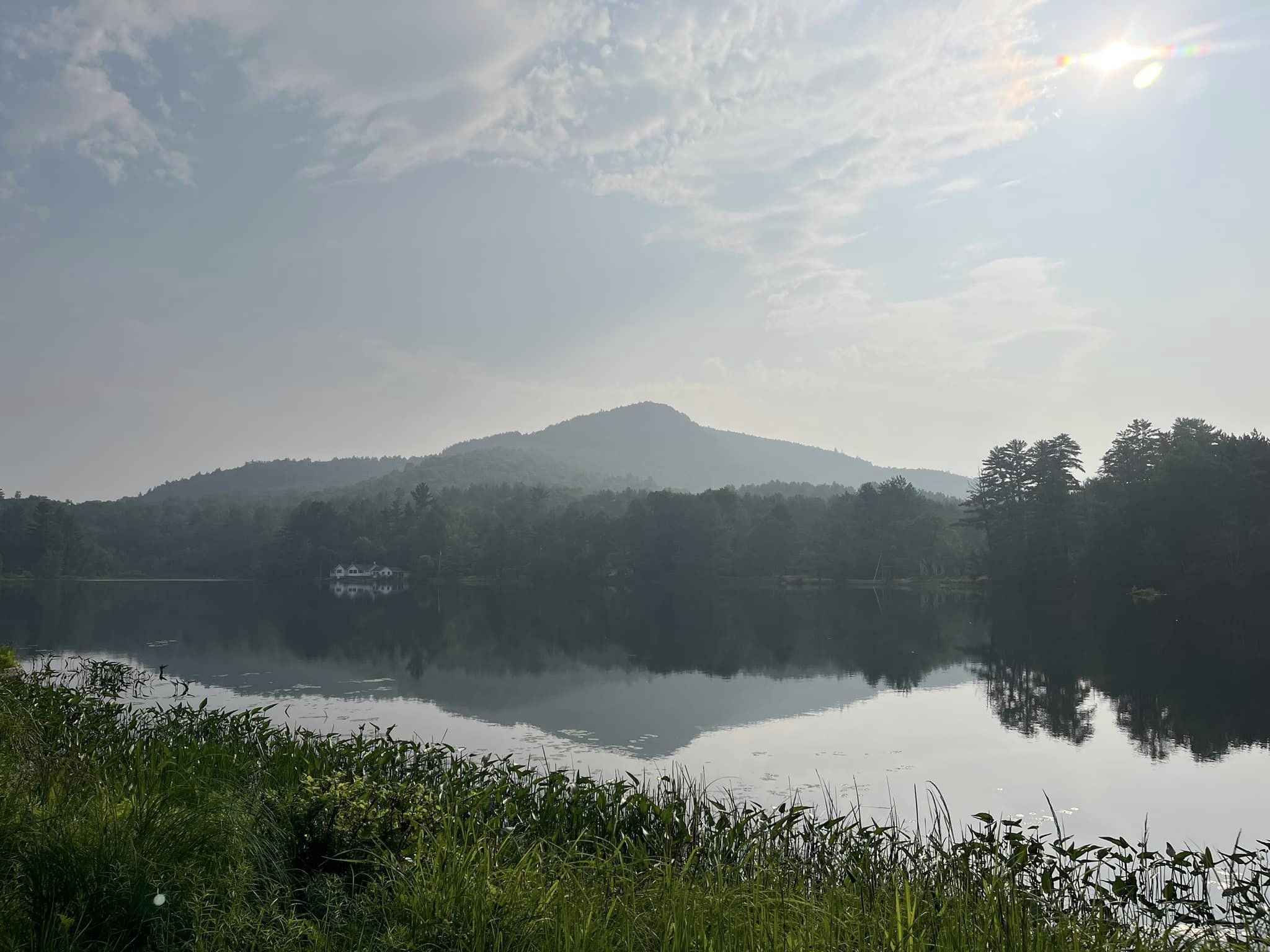Imposter Syndrome

We evolved in the outdoors.
In fact, we evolved in the back country.
There were few trails, likely no trails, when hominids first walked out of Africa to settle Europe
and Asia around 2 million years ago.
We ran to hunt. We ran to escape.
Our children ran to play. They still do.
As climate cooled for a time, forests gave way to open grasslands, and our ancestors evolved
from tree dwellers to bipedal hominids learning to survive with fewer hiding places.
We learned to run.
But we did not run on asphalt roads. There were no asphalt roads.
All our ancestors migrated out of Africa, on foot, eventually to populate every continent on
Earth.
Running in the back country is in our DNA.
So why, then, do so many feel the twinge of imposter syndrome the very moment their feet touch
trails and natural spaces? What is it that causes us to feel as though we do not belong? Where
have our instincts gone?
Why have we forgotten ourselves, and how may we regain our worth in the outdoors?
I did not suffer too long from imposter syndrome on the trails. As a geologist, I have hiked trails
and the back country extensively, for more than two decades. And I have been running
competitively for three decades. Yet the first time I wondered what might happen if I tried to
combine the two…tried to RUN on the TRAIL…I felt foolish. I felt silly. I felt out of place and
as though someone might soon yell at me, telling me to stop running on these trails, as I was
often scolded as a child because, as a child, I literally ran EVERWHERE. Yet no one scolded
me and no one told me to stop. It was all in my head. And the feeling of euphoria from
spending time on my feet in the woods was indescribable. And so, I pushed on.
Still, I know all too well how crippling and restricting the feeling of imposter syndrome can be,
and that feeling was first made real to me by a PhD program, leading me so far down a road (no
pun intended) as to question whether I knew much of anything about geology at all. I had to
regain my sense of VALUE and WORTH as a PhD candidate in the sometimes-crippling world
of academia, so I was determined not to let running on the same trails and outdoors I’d spent
much of my life frequenting scare me out of participating in an activity that brought me so much
joy.
So why do interested runners feel like imposters on the trails? Why have we forsaken our own
needs and wishes in the outdoors in fear? What are we so afraid of?
Neophytes are new to the trails. Perhaps you lack experience and being new causes you to
question your worth on the trails. You question whether you belong. Other runners passing you
on the trails may appear as experts in all aspects of trail running, simply because they wear
certain gear or are moving faster than you (I address these points below). You feel that their
“expert” experience qualifies them, whereas your own inexperience disqualifies you. This is
nonsense. Every experienced trail runner was once new to the trails, just like you. For them,
early days turned into weeks, months, and eventually years. And not all those sharing this space
with you are experts. There are many novice trail runners who move with confidence because
they are accustomed to the terrain but are not necessarily experts; they simply enjoy spending
time on their feet and sharing a few trail miles with friends. And so should you. We all need to
begin somewhere. The best way for you to begin is to take that first step and believe in yourself.
Perhaps you are not a fast runner or perhaps you like to slow things and enjoy your time on the
trails more. You prefer your workouts nice and steady. Other trail runners routinely fly past
you, leaving you in the dust (at least that’s what you may be telling yourself). You’ve never
BQ’ed. You have never stood on a podium. You have never placed in your age group. You
cannot remember your last PR. To this, I say proudly own your place in the middle or back of
the pack. Moving on the trails in any form or at any speed is a privilege, one not all people may
access due to resources, location, or even health. A 10K is the same 10K, whether you run 11-
minute miles or 6-minute miles. We all occupy different bodies and our different bodies all
operate and move at different paces. RESPECT the body you’re in MORE by allowing yourself
permission to move at the pace and rhythm your body finds along the trails. You may intend to
work on improving your pace, but always meet your body where it’s at, not where you think it
should be, based on someone else’s metrics or Strava.
Trail runners who perceive themselves as imposters may feel as though they do not look like a
trail runner. But really… “What should a trail runner look like?” Society places a tremendous
burden on us to look a certain way, and women may feel this more. Is it the gear? Is it the
height and weight? Is it the new brand name kicks? You may be out there rocking the generic
big-box store gear, or gear that is second-hand, and as a result, you feel less as though you
belong. But ask yourself, what do you actually need to move in these spaces? Some kind of
footwear with traction is a must; for women, another necessity may be a sports bra. But beyond
that, what do we actually really need? As it turns out, not much. Focus on being a do-er, and
less on having a certain look. Crushers crush by running trails (and roads) with regularity and
consistency. They don’t model the latest fresh gear and simply look the part or talk about it. If
you don’t have the same top-notch shoes and clothing as others, with whom you share the trails,
not to worry. It’s just extra and none of this extra stuff defines a runner. It’s just stuff.
As you move into longer and/or hotter runs, you may find it helpful to carry some hydration with
you in the form of a handheld flask or even a hydration pack. Cold or wet weather running may
call for warm or waterproof gear. And even the best shoes wear out over time. Know that many
of these items can be purchased on sale or clearance at your local running store, or secondhand at
brick and mortar and online thrift stores. Many running groups also encourage trading and
sharing of gear. You don’t need much, and necessary items can be acquired on a budget. Trail
running really can be an affordable sport.
Body image may also play a role in how you perceive yourself on the trails, if those around you
look differently than you do. Yet, first and foremost, bodies need to be strong to move along
rugged trails, not look a certain way. Focus on getting stronger through regular practice, fuel
your body accordingly, and learn to respect your body for the amazing things it is doing for you.
Look at all the amazing places it can take you. Forget about what anyone else around you looks
like. Own your own space. Be CONFIDENT in your own space.
Perhaps you have been made to feel invisible or ignored on the trails, which does not help you
feel to be less of an imposter. It reinforces the notion in your mind that you do not belong.
Folks engage in their own conversations, while refusing to so much as make eye contact with
you. Fortunately, I’ve felt only acceptance from the trail community, and I believe that trails do
connect us. Yet I know the feeling of being invisible firsthand from many road races in all the
states in which I have lived. I know the feeling you get when other runners, even those in
charge, refuse to make eye contact with you, or when forced to, look at you as though you have
five eyes. I once had a runner cross very closely in front of me following a road race, so close as
to push me back and step on my foot, only to tell me she didn’t even see me, once I confronted
her. It’s a very diminishing feeling, to say the least, and momentarily reduces you…so I want to
say to anyone reading this, with whom this resonates, that I feel you, and that this does not define
your worth. You are so much more than that.
Still, while I would hope that all trail enthusiasts would be welcoming to newcomers, you may at
times find yourself on trails with others lacking the warmth you seek. I would encourage you to
remember why your heart is drawn to running the trails and let that be your guide. Do not feel
discouraged. For building friendships around trails and being outdoors, it is sometimes healthy
and necessary to move on, fostering new friendships on different trails, while adjusting your
expectations on old ones.
You may also feel like an imposter because you stand out. Perhaps no one else on your trails
looks like you. It may become more difficult to find a sense of community and belonging when
you are different than everyone else around you. Some runners may be less affected, of course,
and run the trails without seeking representation. But for others, representation is crucial. In the
end, I believe we all crave a sense of belonging and it becomes difficult to belong when you feel
alone in your “otherness.” To that, I first say, be present in your “otherness.” Be the face that
someone else may be looking for, running on the trails. Encourage others who look like you to
join you and consider connecting with the increasing number of organizations who work in
person and through social media to increase representation on the trails. You are a trailblazer,
not an imposter.
Call for comments! Do you have a story of trail imposter syndrome and how you overcame it?
Are there reasons you felt as though you did not belong running on trails, reasons that are not
included here? If so, I’d like to know. The more we talk about this, the more we can help
remove it from our vocabulary, and more neophytes can step onto the trails for the first time with
CONFIDENCE.
Add Comment
You must be logged in to post a comment.







